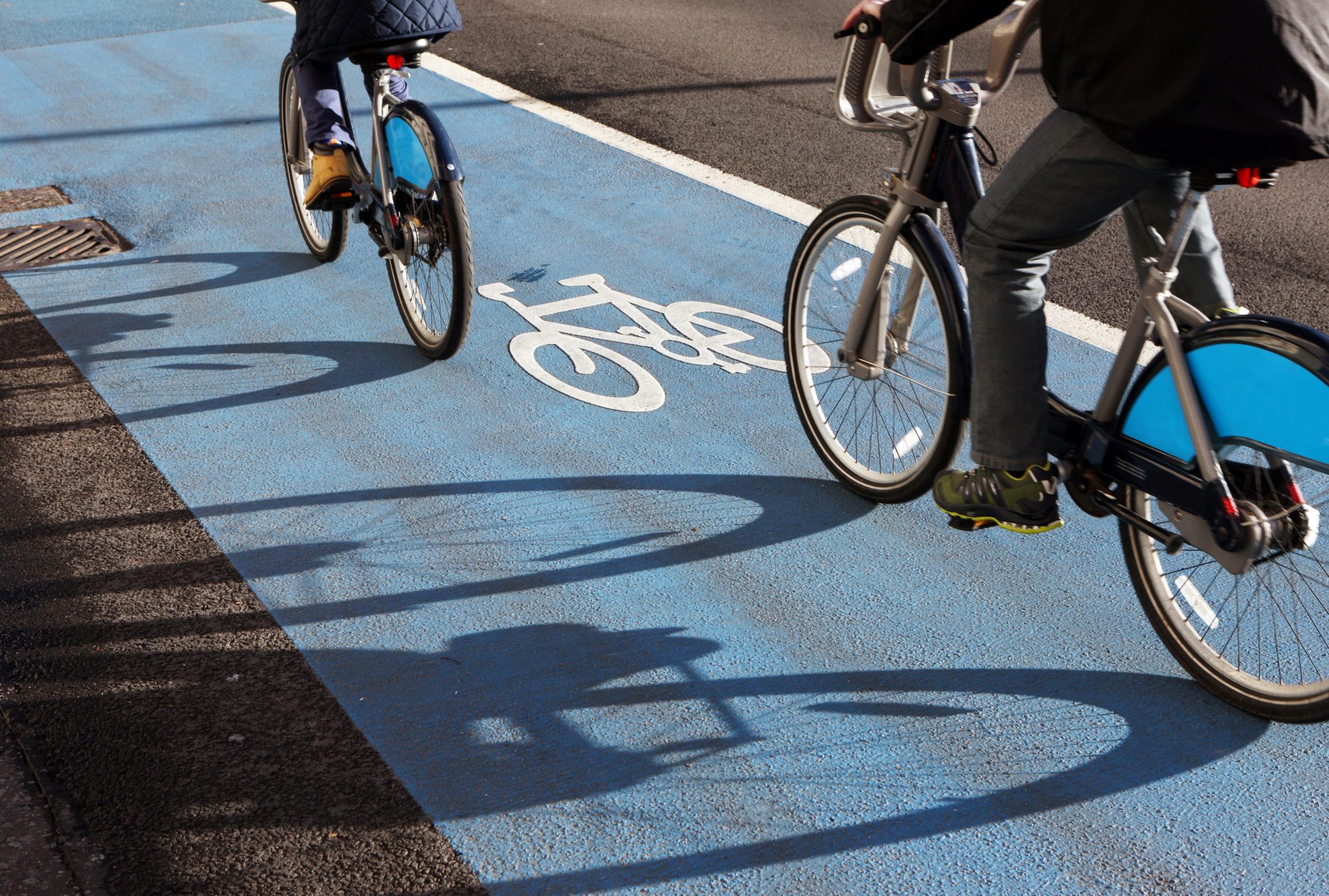Government needs to back cycling to fight climate change and poor health, says Transport Committee
The report by the Transport Select Committee states that the Government has to put its weight behind initiatives


A report by the UK parliament's Transport Select Committee has concluded that the Government must lead the campaign to champion walking and cycling, if it wants to cut the "huge" cost of inactivity, climate change, air pollution and traffic congestion.
The report, published on Tuesday, noted that walking and cycling can combat a range of pressing issues affecting our environment and health.
The findings come just one month after a Government funded paper extolled the benefits of bicycles over other methods of reducing carbon footprint, such as electric cars, and less than two months after Transport for London noted that increased infrastructure resulted in record rates of cycling.
The Committee has called for the Government to set more ambitious targets, and increase funding, whilst taking a clear leadership stance to encourage local authorities to make active transport a priority.
The findings of the report state that the £400 million a year spent on walking and cycling equates to just 1.5 per cent of total transport spend. The Committee has recommended a dedicated funding stream, to be used to fund active travel alone.
The report also notes that the current method of determining the economic benefit of different road schemes is skewed in favour of "business" motorists, and people who travel by car - without taking into account savings made by the likes of the NHS via active modes.
The report notes that in England, more than 60 per cent of journeys of one or two miles are made by car or van, and less than 2 per cent made by bike, and that despite apparent attempts to curb usage, the number of licensed vehicles has increased by 35 per cent in the last 20 years.
Get The Leadout Newsletter
The latest race content, interviews, features, reviews and expert buying guides, direct to your inbox!
The conclusions come not long after Sport England’s Active Lives Survey uncovered the uncomfortable truth that 25 per cent of people n the UK get less than 30 minutes of physical activity per week.
Commenting on the report's findings, Chair of the Committee Lilian Greenwood MP, said: “Road transport is the single biggest contributor to poor air quality and is responsible for some 80% of roadside nitrogen dioxide concentration. Around a quarter of the UK’s greenhouse gas emissions come from transport.
“We also know that getting active by walking and cycling as part of our daily routine is good for us. It’s good for our health and saves on the cost of healthcare. It can reduce congestion, improve air quality, increase productivity and drive footfall in our town centres."
“The Government must stand up for active travel. It must show real leadership by setting ambitious targets for cycling and especially walking. It must give local authorities the support and funding they need to engage the public and make active travel a priority in their areas. It must do whatever is necessary to persuade more people to get on their bike, or Shanks’ pony.”
An alliance of walking and cycling organisations, including national charity Cycling UK, has responded to the report, backing the recommendations and stating that the Government must "seriously commit" to finding significant improvements in active travel.
The group noted that the current policies in place will deliver only a third of what is needed to meet the 2025 cycling targets set by the Government.
Speaking on behalf of the Walking and Cycling Alliance (WACA), CyclingUK's chief executive Paul Tuohy said: “We are encouraged that the Government has commissioned research into what additional resources are needed to meet its cycling and walking targets. We now urge them to publish its findings and act on them as soon as possible."
Speaking from a public health point of view, Director of Property at Sport England, Charles Johnston said: “We know that getting more people using active travel will see benefits for individuals’ health and the NHS as a whole, the environment and for local communities.
"There is some great work being done to help people take part in active travel, not just during the commute to work, but as a chosen way of getting around. What’s important now, as the Transport Select Committee finds, is that we share best practice to make sure that active travel is the safe, practical and fun option for travelling.”

Thank you for reading 20 articles this month* Join now for unlimited access
Enjoy your first month for just £1 / $1 / €1
*Read 5 free articles per month without a subscription

Join now for unlimited access
Try first month for just £1 / $1 / €1
Michelle Arthurs-Brennan the Editor of Cycling Weekly website. An NCTJ qualified traditional journalist by trade, Michelle began her career working for local newspapers. She's worked within the cycling industry since 2012, and joined the Cycling Weekly team in 2017, having previously been Editor at Total Women's Cycling. Prior to welcoming her first daughter in 2022, Michelle raced on the road, track, and in time trials, and still rides as much as she can - albeit a fair proportion indoors, for now.
Michelle is on maternity leave from April 2025 until spring 2026.
-
 'It took everything' - Puck Pieterse outclimbs Demi Vollering to win La Flèche Wallonne
'It took everything' - Puck Pieterse outclimbs Demi Vollering to win La Flèche WallonneDutch 22-year-old shows Classics pedigree with first one-day victory
By Tom Davidson
-
 Tadej Pogačar flies to dominant victory at La Flèche Wallonne
Tadej Pogačar flies to dominant victory at La Flèche WallonneSlovenian takes second win at Belgian classic ahead of Kévin Vauquelin and Tom Pidcock
By Tom Thewlis